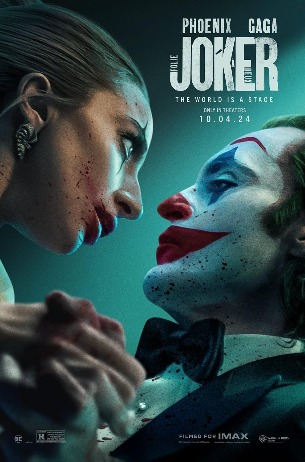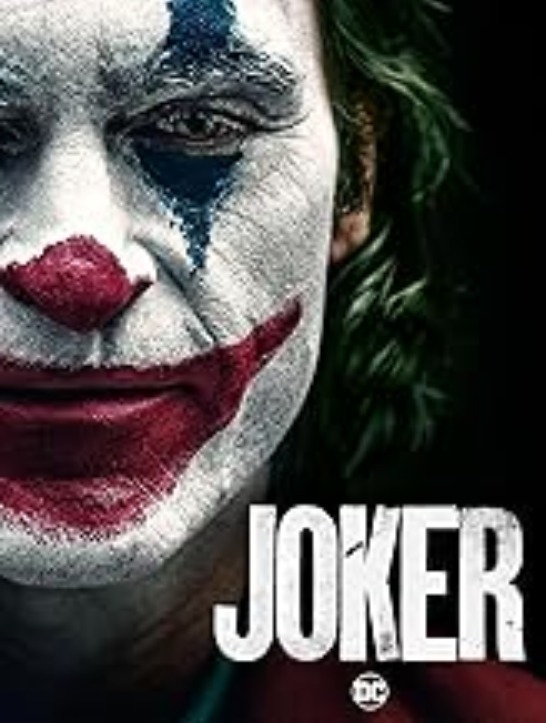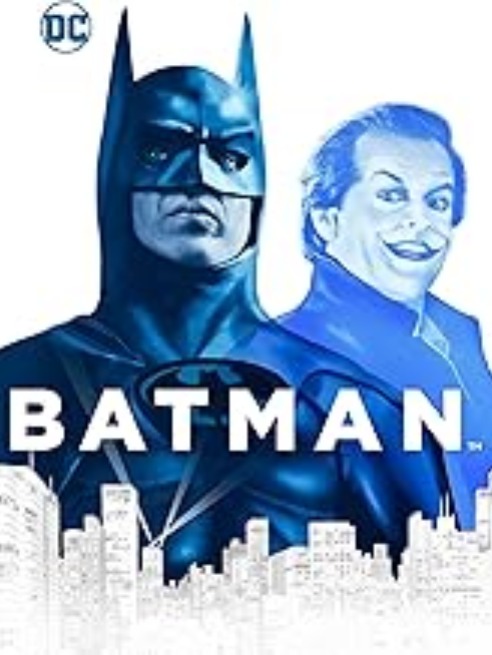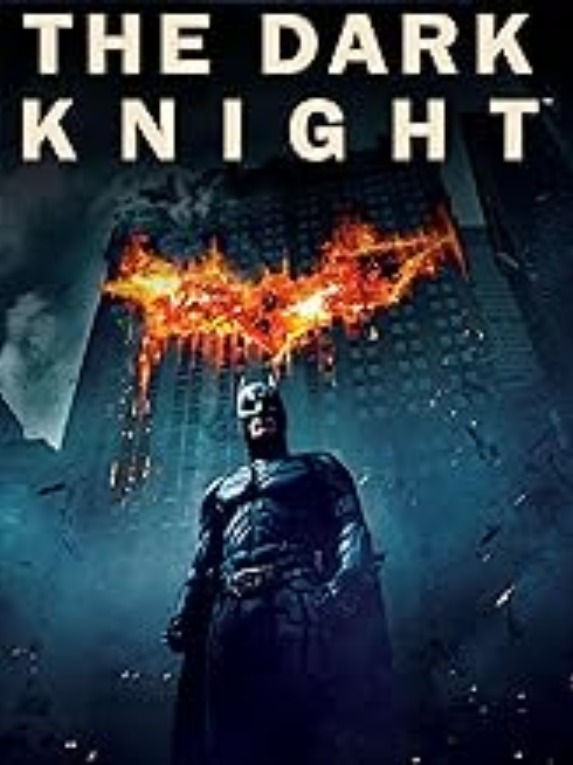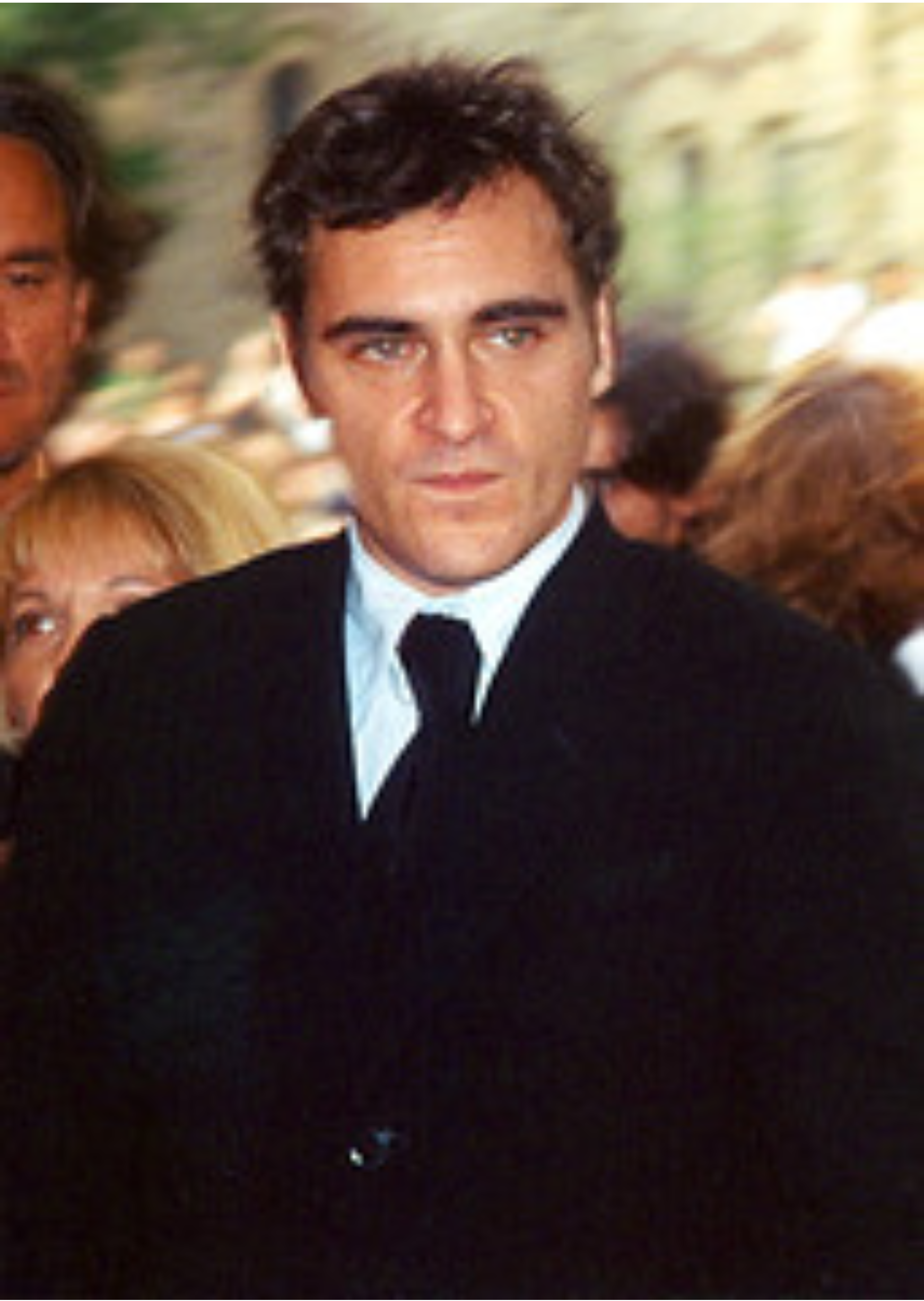
Joaquin Phoenix
Warner Brothers
Rated: R
138 Minutes
Directed by: Todd Phillips
Starring: Joaquin Phoenix, Lady Gaga
D
The movie soundtrack of Joker: Folie à Deux should be pretty popular with those who enjoyed the marvelous duets in recent years featuring Lady Gaga and Tony Bennett. The soundtrack substitutes Joaquin Phoenix (who doesn’t have an awful voice) for Bennett, and the results include some marvelous show tunes belted out by co-star Lady Gaga. Unfortunately for those who see the movie instead of listening to the soundtrack, the twenty minutes of show tunes in Joker: Folie à Deux are the only bearable moments in an otherwise dreadful 138-minute movie sequel.
The original Joker movie portrayed the inevitable descent into madness of Arthur Fleck (Phoenix). He was a fourth-rate comic whose shtick was wearing clown makeup. Years of being ridiculed and bullied eventually led Fleck to snap on network television, resulting in a bloodbath. The film had its fans (I was not one of them) and won Phoenix the Best Actor Oscar Most of all, it had a reasonably coherent storyline (as much as a film about a man going nuts can have). Joker: Folie à Deux lacks any of these except for the violence.
The sequel opens two years after Fleck’s killing spree in Joker. He’s now an inmate in Arkham Asylum, awaiting trial. His attorney (Catherine Keener) thinks Fleck has an insanity defense by claiming that his other personality, Joker, committed the crimes. If Fleck thought life on the outside was harsh, his stay at Arkham is much worse. He’s subjected to physical and mental abuse at the hands of guards and inmates alike. However, he soon acquires a bright spot in his dismal existence in the person of fellow inmate Lee Quinzel (Gaga). She admits to Fleck that she’s been a massive fan of his since seeing his killing spree on television. It’s love at first sight, accompanied by music video montages featuring the two stars.
Eventually, the show tunes end and the trial begins. Fleck decides he isn’t crazy and fires his attorney. The judge reluctantly agrees to let him defend himself and to wear his Joker makeup. You don’t have to be a legal scholar to guess the trial goes off the rails completely. Many viewers probably wish the movie ended when the trial did. Sadly, Fleck returns to Arkham for an anticlimactic finale that wastes another 15 minutes of screen time.
Joker: Folie à Deux attempts to provide greater insight into Fleck’s insanity, but it merely gives Joaquin Phoenix a chance to repeat his routine from the first movie in prison in a courtroom setting. When he’s not cackling around and prancing to the music, Fleck mumbles a lot and is nearly catatonic. The trial sequences also give some surviving characters from the first movie a chance to testify on the witness stand to things that audiences saw play out in the earlier film. The only thing new in this sequel is Lee Quinzel, and she represents a tremendous missed opportunity for the filmmakers.
Lee is based loosely on the Harley Quinn character in the comics (portrayed by Margot Robbie in earlier DC movies). But, while the earlier versions of Lee portrayed her as a kooky, insane groupie with the hots for the Joker, here screenwriters Scott Silver and Todd Phillips (who also directed) attempt to add depth to her backstory. The attempt is only marginally successful, in part because the movie devotes little time to her when she’s not singing. The audience gradually learns some details about her character, and there’s a poorly handled and uninteresting third-act twist. However, it soon becomes clear that Lady Gaga is only in the movie for her musical talent and name recognition. Joker: Folie à Deux is a Joker movie, not a Joker-and-Lee movie.
Director Phillips knows how to stage musical set pieces, and the soundtrack includes some great material like “For Once in My Life,” “That’s Life,” “That’s Entertainment,” and “I’ve Got the World on a String.” Gaga is excellent in these numbers, and Phoenix holds his own. The dance routines are also well-choreographed. However, the music stops after two or three minutes, and the transitions to the following scenes are often awkward and always a letdown. I was reminded of the moment in the original version of The Producers when the technically superb production number, “Springtime for Hitler,” ends in stunned silence. Unlike The Producers, which had Dick Shawn to revive the audience, Joker: Folie à Deux has nothing that’s funny or dramatic.
The trial sequences of Joker: Folie à Deux start out somewhat dull, as legal thrillers go. But when Fleck fires his attorney, the character’s insanity is fully displayed. That makes the trial’s second half more bizarre, but not more exciting or entertaining. Efforts to juice up the material by inserting Fleck’s dream sequences and attempting to pass them off as real merely confuse, rather than entertain or enlighten. The result is like watching the worst parts of The Trial of the Chicago Seven, without the latter film’s real-world relevance.
Without the musical numbers, Joker: Folie à Deux would probably have been, hands down, the worst major studio release of the year. Lady Gaga’s presence, along with some well-choreographed dance sequences, makes the musical sections of the movie tolerable. When the music isn’t playing, the film completely wastes the talents of Phoenix, Gaga, and a talented supporting cast. Joker: Folie à Deux is a moviemaking folly of the worst kind.
In this clip, the audience sees a fantasy musical montage involving Joaquin Phoenix and Lada Gaga:
Read other reviews of Joker: Folie a Deux:
Header Photo: "Riot Radio" by Arielle Calderon / Flickr / CC By / Cropped
Silver Screen Cinema Banner Photos: pedrojperez / Morguefile; wintersixfour / Morguefile
Join Button: "Film Element" by Stockphotosforfree
Twitter Icon: "Twitter Icon" by Freepik
Facebook Icon: "Facebook Icon" by Freepik
LinkedIn Icon: "LinkedIn Icon" by Fathema Khanom / Freepik
Goodreads Icon: "Letter G Icon" by arnikahossain / Freepik
Joaquin Phoenix: "Walk the Line_002" by GabboT / Flickr / CC BY-SA
Certain images on this site appear courtesy of Amazon.com and other sponsors of Silver Screen Videos for the purpose of advertising products on those sites. Silver Screen Videos earns commissions from purchases on those sites.
© 2024 Steven R. Silver. All rights reserved.


